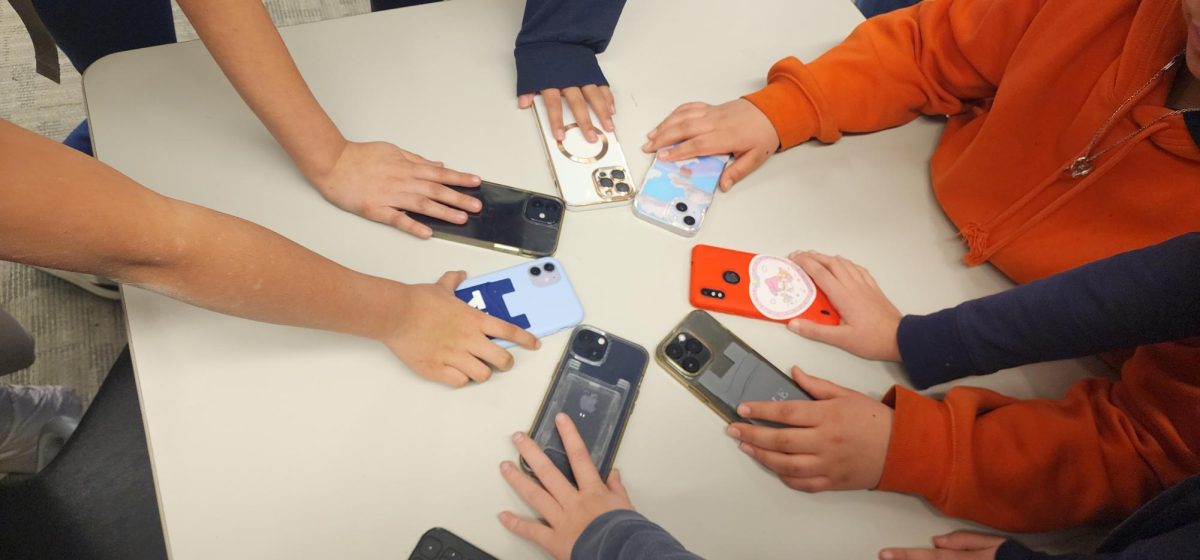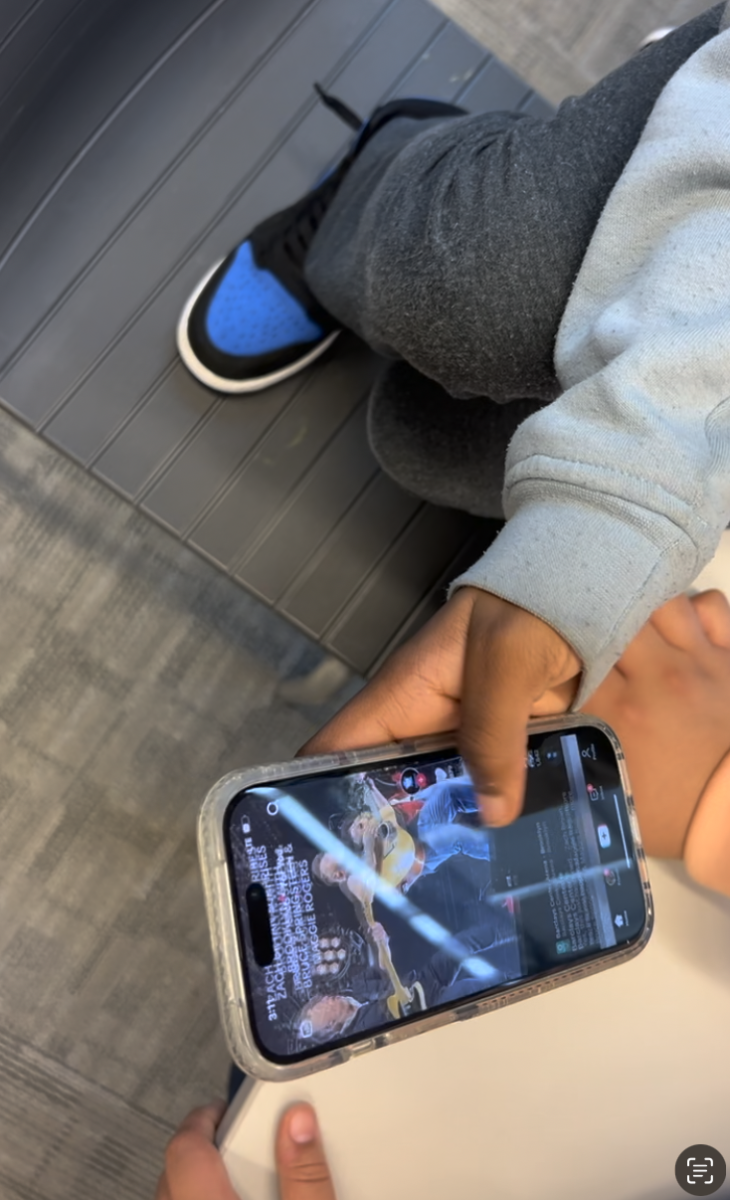NO PHONES. NO DRINKS. NO FOOD.
Clay Selmont, a music teacher at East Rock Community & Cultural Studies Magnet School, makes it very clear that phones aren’t welcome in his classroom. A sign even says phones are not allowed and, if seen, will be taken away.
But other teachers, like Laura Lake, who teaches 7th and 8th grade social studies, allows phones during free time and field trips.
This can make things confusing for students at East Rock School — and even lead to students getting phones taken away because they get teacher rules mixed up.
Phones are controversial, especially in school. Some say they can be distracting when students are trying to learn. At East Rock School, tons of students also lose their phones. Sometimes they don’t end up finding the phone at all. That could lead some to have to pay over $900 for a replacement. Also, phones can impact your mental health.
At the same time, there are pros to having a phone, especially in case of emergencies. Phones can also be a good way to communicate with friends while working on a project. Phones can also be a useful tool. If there are not enough calculators in math class, you could just pull out your phone and use that! Our phones have built-in calculators! Also, if you go on field trips with a lot of things to see, you can take pictures with your phone. You can create memories and now you can remember the things you learn and experienced.
So, are phones a problem?
Linda Charmaraman, a senior research scientist at the Wellesley Centers for Women and the founder and director of the Youth, Media & Wellbeing Research lab, told East Rock Record reporters that, “they are not necessarily good or bad. It depends on how you use them.” 
According to Dr. Charmaraman, some students use their phones to do schoolwork because they don’t have access to a laptop or desktop computer. At the same time, said Dr. Charmaraman, it can be distracting if students are gaming while trying to do homework.
Students at East Rock School have different feelings about phones in school.
According to the East Rock Record Fall/Winter 2024 Survey, 75 percent of students who responded said they had a phone. About 70 percent said that having a phone does not hurt learning in school, but only one-third thought they should be allowed to use them in class.
When asked about whether teachers should allow phones in class, sixth grader Marlin Rodriguez said that it “depends on how the students use it.”
Teachers at school take different approaches to student phone use. Kindergarten teacher Jaleesa Wilson said she would take a phone away in her class and return it at the end of the day. However, phone use in kindergarten classrooms is generally rare.
In Angela Maiocco’s fourth grade class, there are consequences for having a phone out: After three warnings it is taken away. Ms. Maiocco also highly dislikes social media. She said that it “is the root of all evil.”
Ms. Lake said that she allows students to use their phone during a field trip or during free time. However, if a student uses their phone during class, she gives them a warning. The next time, it will be taken away.
Ms. Lake said social media does have some benefits, but for some younger students, it can become a problem. According to Dr. Charmaraman, a student’s age does matter when it comes to phones and rules. “In middle school there is probably going to be more need for boundaries,” she said.
While a phone is a tools for communication, connection and organizing information, she said it can also be distracting, distressing and can make people feel like they can’t live without it.
In addition, she said, “there is a lot of social pressure in middle school” around having a phone or not having one. But Nayala Conroe, in grade six, answered “not really” when asked if she feels social pressure from not owning a phone.
“I can’t call people, but I have an iPad I can text on,” she said. Ms. Conroe manages to avoid both the issue of improper phone use in class and possible exclusion from the chance to talk with friends digitally.
Yet almost all students eventually have phones. Therefore, comes the question: What age should students be allowed to have a phone?
“That is a question that gets asked a lot,” Dr. Charmaraman said.” It is not the same for every family.” Still, she suggested that while 10 years old is now the average age that students get phones, she advises waiting until middle school to have phones with internet access. “I have a sixth grader,” she said, adding that “she does not have a phone.”
Not all students feel they need a phone. Haven Pickett, who is in fifth grade, does not have a phone. Instead of playing or watching videos on a phone, he likes to “read books and go to the corner store near his house with his brother.”
While some kids might find phones useful, he thinks they are an unnecessary distraction and a big responsibility. Mr. Pickett said he doesn’t need nor expect a phone until high school.














